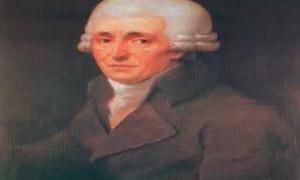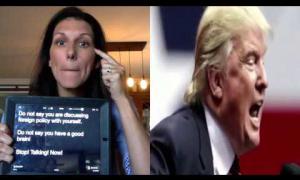He liked it better in Korea
June 25, 2014
War correspondent John Casserly came to work in the Ford White House, and learned about another kind of fighting.
“As modest as my job is, I must give it my damndest. The country needs hard work in the White House. It is calling us. We must help this good man who is President.”
As a reporter and correspondent, John J. Casserly was an eyewitness to some of the 20th century’s most tumultuous events and scenes—including in Vietnam, Korea, Algeria, Lebanon, and the Dominican Republic. Casserly was still in his twenties when he was filing stories from Korean War battlefields with datelines such as “No-Man’s Land, Korea” or “With the Third Division.” Casserly’s career took him all over the world, including to Rome and the Vatican, where he befriended both Pope John XXIII, and Loris Capovilla, the papal private secretary.
Casserly later left print journalism to become a television reporter with a focus on Washington, DC. He subsequently went work as a speechwriter for a Ford Motor executive, next becoming Public Information Director at the Census Bureau. And then, in December 1974, at the age of 47, Casserly (a life-long Independent voter) applied for the job of White House speechwriter under President Ford.
Speaking from his home, Casserly laughed when I asked him if there was a test as part of the application process. “They asked me to write a speech in three days, on housing. Before starting to work on it, I knew nothing about the subject, or what the President’s views were,” he said.
The test speech secured Casserly a job on the White House writing staff. In January 1976, he left the White House, and in 1977 published his book, The Ford White House: The Diary of a Speechwriter, the first of in a long line of books he would write or co-author.
“I wrote the book because I wanted to do something for young writers who were interested in politics. I wanted to give then a bird’s eye view—one man’s view—of writing in a political setting,” Casserly said. Diary was published originally through Colorado Associated University Press, rather than a large commercial publisher, as Casserly wanted to make it clear he was not attempting to cash in on his White House role.
Casserly was as direct over the phone as he is in his book. “I didn’t like [all aspects of] my experience in the White House; I thought many of the people who I met there were there to enhance their possibility of moving higher in the world, rather than serve President Ford,” he said.
That is a major theme of the book—how the pursuit of power by various White House staff members distorted and damaged the speech production process.
As a speechwriter trying to serve the President with his pen, Casserly found himself writing complex speeches with little official direction about what precisely a particular speech was supposed to convey. Speeches were driving the creation of formal policy positions in many cases, and not the other way around.
And speech approval procedures appeared deliberately murky and mysterious, as if arranged by one faction in the Ford White House to cut out other factions. The procedures became political footballs, instead of, in Casserly’s view, a well-organized, rigorous system that would ensure the President always spoke from a factually-accurate text, sparing him the indignity of having to later retract remarks.
“I remember one speech that I wrote went to a dozen parts of the government for review. Some of the changes were good, some were more than good and added greatly to the draft—while other changes were just so much self-aggrandizement by those organizations,” he said.
There was also the question of which audiences a particular speech was intended to reach. From his correspondent days, Casserly had written for the proverbial “Kansas City milkman”—a catchphrase popularized by journalist Reynolds Packard. It means an average reader, with no particular expertise in the topics being presented.
The key to reaching that person through a speech, Casserly writes in his Diary, is by writing the speech with “honesty, humility, and guts.” This view was not shared among all White House advisors, some of whom preferred the President to play it safe, take no chances and make no mistakes (to paraphrase William Safire).
As frustrating as some aspects of his speechwriting job were to Casserly, the book also conveys the humorous side of working in the White House—like when a colleague accuses Casserly of trying to make President Ford sound like President Kennedy. Casserly dryly observes that since he was not living in the US during the Kennedy Administration, it’s hard to see how he could be an expert in the Kennedy style.
The same colleague warns Casserly to “stop trying to make every speech a Gettysburg Address.”
There’s also the time when Casserly tires of internal wrangling with superiors over how President Ford should address the topic of unemployment. Casserly decides not to further press his argument for the President to speak with more compassion. “I’m not going to argue with them directly,” he confides in a colleague. “I’ll write and they can cut it.”
Casserly said the best speech he ever wrote for the President was an April 1975 address at Boston’s Old North Church. Years after the speech, the enthusiasm in Casserly’s voice was unmistakable. “[Future Vice-President] Cheney sat behind me, and once the speech was over, he tapped me on the shoulder and said ‘you earned your pay today.’ Of course, you can’t say anything about the speech you wrote to anyone, except your wife and family, so I shut up about it,” Casserly said.
When Casserly left the White House, as the book makes clear, it was not out of hostility to the President (who comes across as a warm, generous figure in its pages) but rather due to exhaustion and disillusionment with the disorganized speech approval process, and the factional in-fighting responsible for it.
What does it take to succeed as a speechwriter, from Casserly’s view? In our talk, he emphasized four things: “For speechwriting, you need a knowledge of the subject, organizational skills, research skills and writing ability.”
He contrasted this set of attributes with other forms of writing, such as books, newspapers, radio/TVand magazines. “For these, you first need ‘fire in the belly’—you need to be on fire about writing a novel or a news story. When I was out covering a war, for example, I was committed, absolutely committed, with fire in the belly about what I was doing. I was very excited about it—I felt that I was part of the story.”
In comparison, feeling “part of the story” can be difficult for a speechwriter—and byzantine approval processes only accentuate the feeling of disconnection.
Whatever difficulties Casserly faced in the White House, he had little difficulty in writing an excellent book about the experience—one that gives the reader the intimate sense of being on the scene with the author.
Everyone who wants to know more about the highs and lows of working as a speechwriter should read John J. Casserly’s book.



